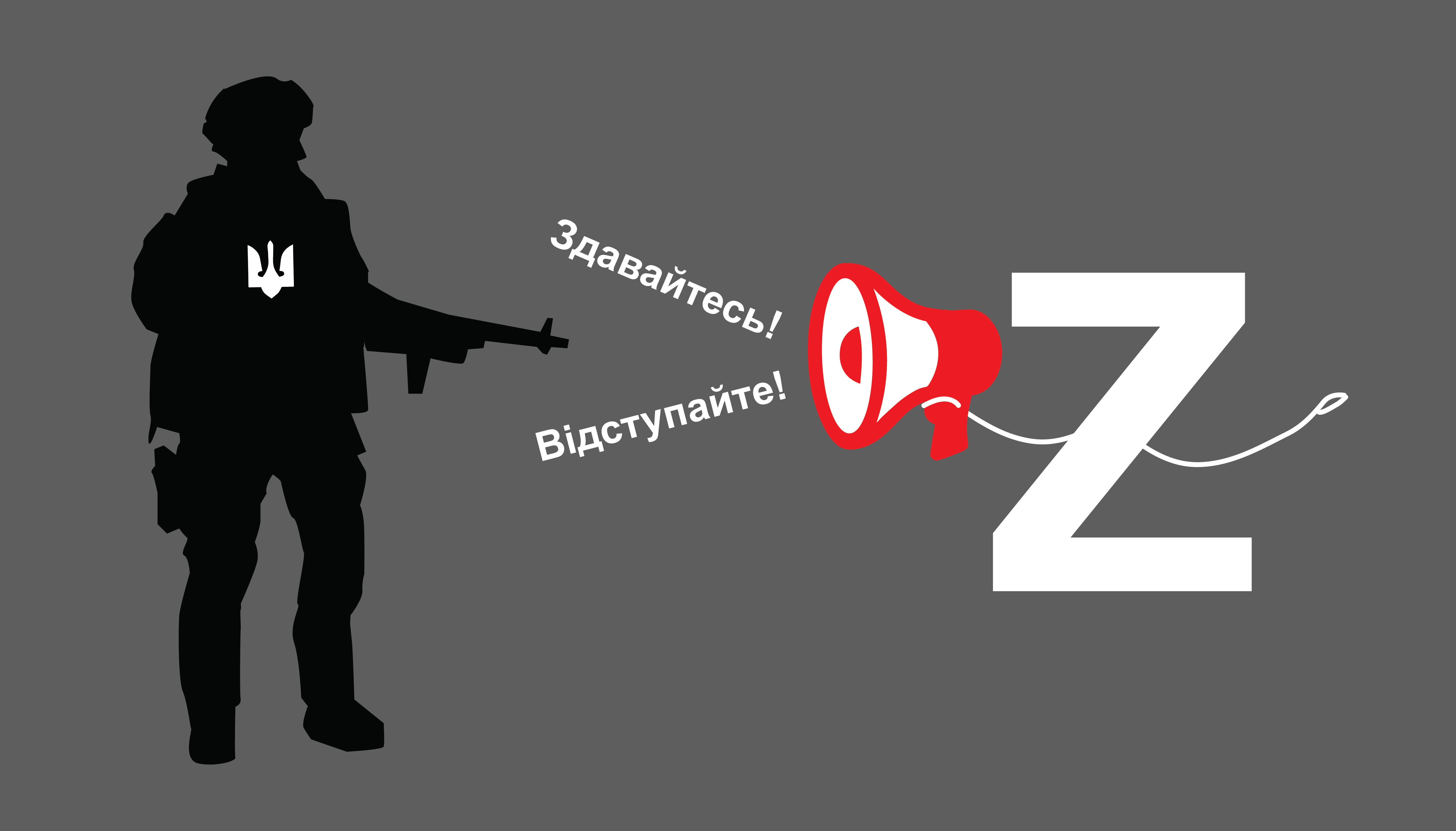Українською читайте тут.
Pro-Russian Telegram channels are exploiting the topic of the capture of Bakhmut to bolster the morale of Russians and undermine the motivation of Ukrainians. Detector Media analyzed over 4,600 messages in pro-Russian Telegram channels during the first three weeks of March, revealing the propaganda tactics utilized by Russia to gain control of Bakhmut.
Towards the end of February and early March 2023, there was an unprecedented surge in searches for the term “Bakhmut” by Ukrainian Google users. This interest in Bakhmut was also reflected in Google trends for Russian users and globally. The heightened attention on this city started in the initial weeks of 2023 amid reports of the Ukrainian army’s retreat from Soledar.
Despite ongoing fighting in and around Bakhmut for over six months, propaganda efforts are portraying the city as already conquered by Russia.
An examination of messages in pro-Russian and occupation telegram channels, identified in the Kremlin Hydra study, was conducted. From March 1 to March 21, Bakhmut was mentioned in 165 out of 311 analyzed Telegram channels. Data on publications in these Telegram channels was provided by TeleZip/Pravdorub Team.
In this article, we outline the main propaganda techniques employed to shape the narrative around Bakhmut.
The Triumph of Historical Memory: Propaganda Telegram Channels Use “Bakhmut” More Frequently Than “Artyomovsk”.
In 2014, during the occupation of parts of the Luhansk and Donetsk regions, Bakhmut was known as Artyomovsk. The city was initially named Bakhmut and was renamed by the Communists in 1924 in honor of Fyodor Sergeyev, one of the founders of the Donetsk–Kryvyi Rih Soviet Republic, who used the pseudonym Artem. He died in 1921 and was interred in Moscow among other Soviet Union “builders” under the Kremlin wall.
Bakhmut was occupied by Russia for four months in 2014. After its liberation in April 2015, the decommunization process began in Ukraine, and the Soviet-era name “Artyomovsk” was reverted to its original Ukrainian name. However, the use of both names for the city persisted. According to Google Trends, the term “Artyomovsk” was more frequently used in Ukraine than in Russia compared to the term “Bakhmut.”

Propaganda Telegram channels are still utilizing both the Soviet and historical names of Bakhmut concurrently. They use the words “Bakhmut” and “Artyomovsk” in the same message in 47% of cases. The word “Artyomovsk” is exclusively used in less than a fifth of messages. The term “Bakhmut” is solely used in Ukrainian pro-Russian Telegram channels and those that were created before February 24, 2022. The former are attempting to act as national news sources, while the latter are seeking to reach the audiences in the communities occupied from 2014 to 2022.
How Propagandists Manipulate Reports on the Fighting in Bakhmut and What They Aim to Accomplish
During the 21 days of observation, we identified the utilization of at least 13 propaganda strategies designed to instill a sense of despair about the defense of Bakhmut. The creators of these Telegram channels aimed to persuade their audience that the city would inevitably fall under Russian control.
“Getting Personal” and “Too Many Repetitions”
Propagandists are attempting to undermine the legitimacy and justification of the defense of Bakhmut by accusing Ukrainian authorities of corruption or acting in their own interests. These messages assert that Bakhmut is simply a tool for supporting President Zelenskyy’s image and not a strategic necessity for the Ukrainian army. The creators of these propaganda channels also claim that there are no competent individuals in the Ukrainian army’s command and repeatedly emphasize the supposed conflict between President Zelenskyy and the Commander-in-Chief of the Armed Forces of Ukraine, Valerii Zaluzhnyi. According to these messages, the President’s Office is unable to agree to a withdrawal from Bakhmut to avoid exposing the incompetence of the Army Commander, Oleksandr Syrskyi. Rumors of an alleged conflict between Zelenskyy and Zaluzhnyi have circulated since at least November 2022, but neither of them nor anyone else in the state leadership, has confirmed the existence of such a disagreement in the four months since.
Through the frequent repetition of messages asserting that Ukrainian leaders are solely motivated by self-interest, propagandists aim to sow distrust of the state among Ukrainian military personnel, civilians, and Ukraine’s international partners. Specifically, the creators of these propaganda channels seek to demoralize the Ukrainian military and convince them to disobey orders.
“Shared Opinion”
Propagandists are actively promoting messages advocating for Russia’s seizure of Bakhmut, even in seemingly unrelated news stories. For instance, on March 15, explosions occurred in Russia’s Belgorod region, which the Russians attributed to the Ukrainian army. Propagandists utilized this news story to depict Ukrainians as bloodthirsty and justify Russia’s armed aggression against Ukraine, reinforcing Russian belligerence. They claim that the explosion proves that Russians in Bakhmut are battling criminals and that Russia’s victory on the battlefield is the only option.
Moreover, propaganda Telegram channels have reported that Ukrainians have allegedly mined the road to Bakhmut, with the only explanation given being that the defense forces are preparing to retreat from Bakhmut and are severing the road to prevent pursuit. This information, which had little relevance to the Ukrainian military’s retreat, was employed to reinforce the idea among the readers of these Telegram channels that Russia would soon seize Bakhmut.
In this manner, the Russians are attempting to instill a sense of hopelessness among the Ukrainian Defense Forces in Bakhmut.
Sending the News You Want
The “euphoria” propaganda technique is designed, on the one hand, to make Russians happy about the expected victory and, on the other hand, to demoralize Ukrainians and supporters of Ukraine. To achieve this, they use the following:
- Reports that Russia already controls Bakhmut;
- News with figures, which part of Bakhmut is already allegedly controlled by the Russians;
- News about the deaths of Ukrainian soldiers or the destruction of equipment;
- Videos or photos allegedly confirming the retreat of the Ukrainian Defense Forces.
In each of these instances, the truthfulness of the information disseminated is irrelevant, as even small details, in the absence of complete information from the scene, can be enough to sway public opinion towards a favorable viewpoint for the Russians regarding the progress of hostilities. This is precisely how the “primacy effect” propaganda tactic operates.
The Russians are also attempting to recruit more individuals to join the ranks of the Russian PMC Wagner by exploiting the potential success in Bakhmut. For instance, the following message was shared on propaganda channels, utilizing the “don’t be late” tactic:
“We urge all patriots to disseminate this information. Each repost brings victory closer! Information for anyone interested in joining the Wagner PMC! Currently, you can get employed, participate in the final capture of Artyomovsk (Bakhmut), and etch your name in history!”
It is worth noting that the Russians have previously utilized the “primacy effect” propaganda method, as they did in October 2022 after the explosion on the Crimean Bridge. They swiftly developed various narratives and suggested possible culprits.
“Bombing with Love”
The propagandists are also attempting to sway the sentiments of those in Bakhmut by persuading them to support Russia. Civilians are targeted with messages from supposed former residents of the city who have already “evacuated” to the aggressor state. There are also statements by alleged Bakhmut residents claiming to have “suffered a lot from the Ukrainian army over the past nine years,” waiting for the arrival of “real liberators” from Russia, and even adjusting the fire on their city to hasten Russia’s victory. In such messages, the tactic of “love bombing” is employed to justify cruelty with humane intentions.
Furthermore, “love bombing” has been used in an attempt to reach out to the military defending Bakhmut. For instance, publications were disseminated about other Ukrainian soldiers who were allegedly “fortunate” enough to be captured by Russia and treated well.
In the past, the Russians have used the “love bombing” tactic when they violated international law and forced Ukrainians to leave for Russia. They presented the deportation as a “vacation in Russia,” and the war against Ukraine as “revenge for the children of the Donbas.”
“Demonizing the Enemy”
This propaganda tactic is being used to create negative images of the Ukrainian military and those who support Ukraine. Some examples include:
- Propagandists appropriated and reversed the memes about Russian soldiers stealing toilets from Ukrainians in the context of the Ukrainian army's alleged retreat from Bakhmut. They even shared videos of a man in a Ukrainian military uniform walking through a field with a white toilet lid tied to his backpack;
- The refusal of the Ukrainian Armed Forces to retreat from Bakhmut was presented by propagandists as evidence of barrier units killing all those who retreated;
- Propagandists accused the Security Service of Ukraine of fabricating the video of the execution of Ukrainian soldier Oleksandr Matsiyevsky after he said, "Glory to Ukraine!";
- The authors of the messages claimed that Polish Catholic mercenaries were selling crosses from Orthodox churches in Bakhmut on the Internet. This is an attempt to support the propaganda claim that there are foreign mercenaries in Ukraine, as well as to rally supporters of Russia to defend Orthodoxy.
Repeating “the Well-Known”
In order to shape people’s attitudes, propagandists often resort to using “stereotypes” and “empty clichés” as propaganda tactics. These tactics rely on the repetition of emotional words and phrases that don’t require any evidence to break down critical thinking. In the context of the ongoing hostilities in Bakhmut, the following phrases were commonly used:
“Bakhmut is littered with corpses”;
“There is no point in holding Bakhmut”;
“Destroyed the Nazi”;
“To turn the ‘road of life of the Armed Forces of Ukraine’ into a ‘road of death’”;
“Black transplant specialists work in Bakhmut”;
“Ukrainian enlistment officers are being sent to the frontline for failing to fulfill the mobilization plan”;
“Combat-ready military units are being withdrawn from Bakhmut to avoid repeating the mistake of the encirclement of Mariupol.”
“A foreign mercenary commands a platoon of the Armed Forces of Ukraine”;
“A forcibly mobilized person was sent to serve in the National Guard”;
“Senior officers have already left Bakhmut and are threatening to shoot those who leave their positions.”
“The situation in Bakhmut is much worse than reported”.
Propagandists often use emotional statements to create a more powerful impact by presenting them as the positions of participants in events, representatives of other states, international organizations, experts, or the media. During the first three weeks of March, Russian propaganda channels distorted the positions of NATO Secretary General Jens Stoltenberg, CNN, Politico, the Washington Post, and others to reinforce their messages about Bakhmut.



